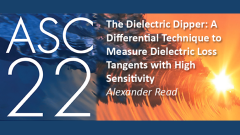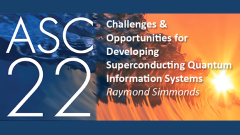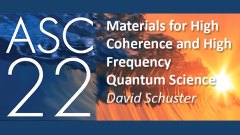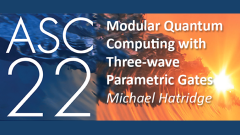Why NMR & MRI Need Ultra-high Field Superconducting Magnets: A Biomedical Research Perspective: Applied Superconductivity Conference 2020
"Over the past 50 years, the development of nuclear magnetic resonance (NMR) and magnetic resonance imaging (MRI) technologies at intermediate and high magnetic fields have revolutionized the non-invasive interrogation of biomolecules and organisms, respectively. In this overview talk, I will highlight the basic physical and chemical principles underlying the techniques, their magnet field dependencies, and current state of the art applications using commercial NMR and MRI instrumentation in research lab and clinical settings. I will then discuss what can be gained with moving these techniques to ultrahigh magnetic fields as well as the challenges posed beyond maintaining persistent, homogenous magnetic fields when moving to ultrahigh magnetic fields and resonant frequencies. A particular focus of my talk will be the merging of NMR and MRI techniques as large-bore persistent magnets enter the magnetic field regime already under exploration via powered magnets and/or small-bore superconducting magnets made using conventional high temperature superconductors."
"Over the past 50 years, the development of nuclear magnetic resonance (NMR) and magnetic resonance imaging (MRI) technologies at intermediate and high magnetic fields have revolutionized the non-invasive interrogation of biomolecules and organisms, respectively. In this overview talk, I will highlight the basic physical and...
 Cart
Cart Create Account
Create Account Sign In
Sign In





